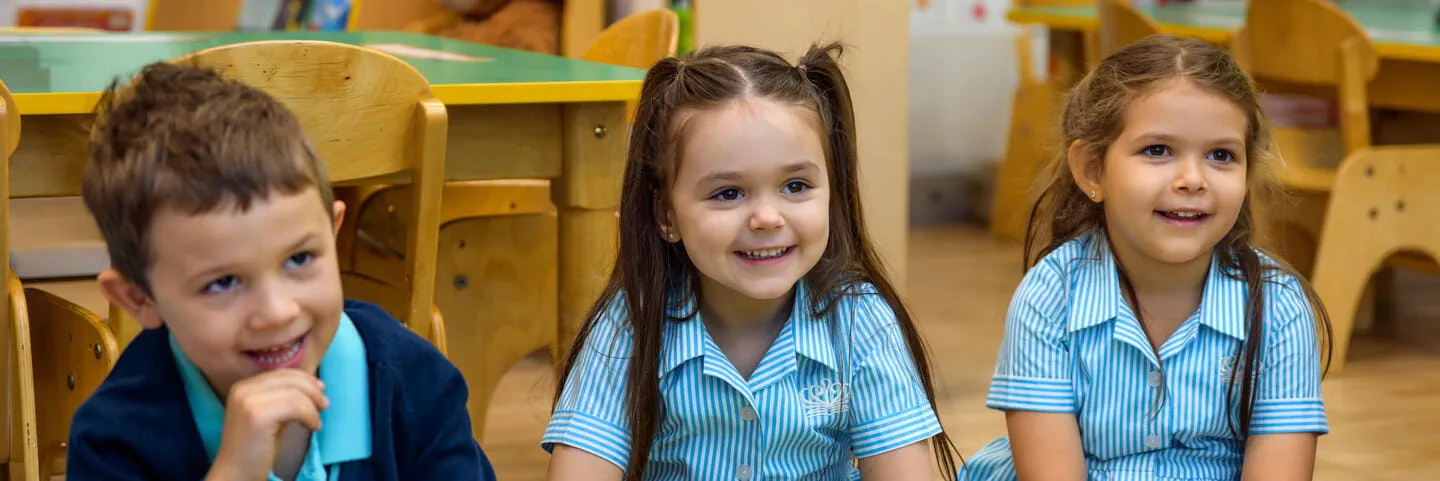We use cookies to improve your online experiences. To learn more and choose your cookies options, please refer to our cookie policy.
Join our Early Years Open Day!
Thursday, 26th February 2026 at 10:00am

Academic excellence is more than achieving top marks - it's about developing the skills, habits, and mindset that prepare students for long-term success. Whether you're a parent supporting your child or a student striving to do your best, this guide outlines strategies that make excellence not just a goal - but a way of learning.
Academic success opens doors. It leads to university placements, scholarships, and career opportunities. But just as importantly, it fosters confidence, curiosity, and independence.
At The British School Warsaw, we see excellence as a partnership between students, educators, and families. When students thrive academically, they grow emotionally and socially too - ready for whatever comes next. You can explore how we embed this philosophy into our Academic Excellence framework.
Academic excellence starts with four foundational skills:
Critical Thinking: Asking questions, making connections, and analyzing problems deeply.
Reflective Thinking: Looking back on learning to understand strengths and areas to grow. Here’s how we develop reflection through the IB learner profile.
Language Proficiency: Strong communication across reading, writing, speaking, and listening - especially in English.
Analytical Thinking: Breaking complex ideas into manageable parts and building conclusions based on evidence. A great example of this in practice is The Max Box Project in Year 9, where students used maths, creativity and analysis to solve real problems.
These aren’t just classroom tools - they’re life skills that help students handle complexity, learn independently, and collaborate with confidence.
To learn effectively, students need strategies - not just good intentions. Here’s what we recommend:
Distributed Practice: Space out learning over time rather than cramming.
Active Engagement: Don’t just read - explain it aloud, take notes, or apply it in a new way.
Minimize Distractions: Create a quiet, device-free study zone. Social media can wait.
Switch Study Environments: A change of setting refreshes focus.
Use Technology Wisely: Educational apps, flashcards, and videos can reinforce understanding when used intentionally.
Short, focused sessions (30–45 minutes) with regular breaks are often more effective than long, passive study marathons. For insight into how we support these habits in class, see how we use thinking routines to build deeper understanding.
Academic success isn’t about doing it alone. Most schools and universities offer powerful resources that often go underused:
Research Databases and Journals: Access to peer-reviewed articles and subject-specific resources can deepen learning and support assignments.
Digital Learning Tools: Interactive platforms, course-specific videos, and online practice tests can build confidence and mastery.
Teacher Guidance: Never underestimate the value of asking questions or seeking feedback from teachers - it’s a vital part of learning.
Behind every successful student is often a great mentor - someone who listens, guides, and challenges them to grow.
Mentors might be teachers, older students, or family members. What matters most is consistency, encouragement, and expertise. A mentor can:
Help with subject mastery
Offer emotional support
Model resilience and perseverance
Grades matter, but they aren’t the whole picture.
We encourage students to focus on progress over perfection. Continuous assessment - like quizzes, projects, and self-reflection - gives a more complete view of growth than a single final exam.
Understanding the feedback behind each grade is key. What could I do differently next time? What am I already doing well?
The goal is self-awareness, not stress.
Transitioning from school to university can feel overwhelming. The earlier students begin preparing, the smoother it will be.
Start by exploring:
Time management tools
At TBS Warsaw, our approach builds this confidence gradually. You can see how we prepare students through the IB Diploma Programme, equipping them with skills for university and beyond.
Academic achievement doesn’t end with grades - it sets students up for:
University acceptance and scholarships
Career readiness and problem-solving confidence
Greater self-discipline, focus, and motivation
A lifelong love of learning
Students who strive for excellence grow not just in knowledge - but in mindset, leadership, and adaptability.
Academic excellence is a journey, not a destination. It’s built through small, consistent actions, guided by curiosity and supported by family and mentors.
At The British School Warsaw, we’re committed to developing the whole student - mind, heart, and future. Let’s work together to unlock their full potential.
If you're looking for a school that nurtures academic success and personal growth, we’d love to welcome you to our community. Frist step is to book a visit, let's meet soon.
Your child’s path to excellence starts here - with us.